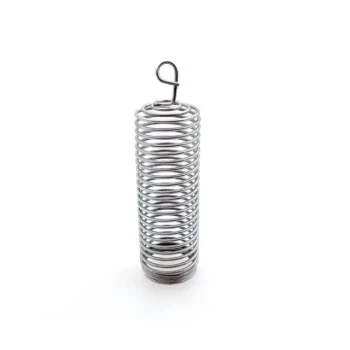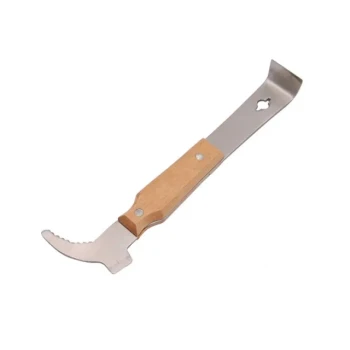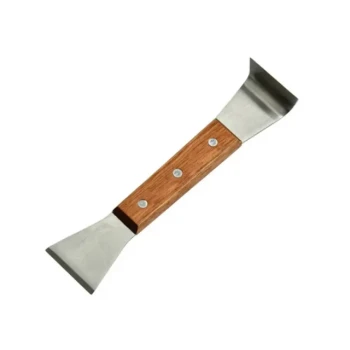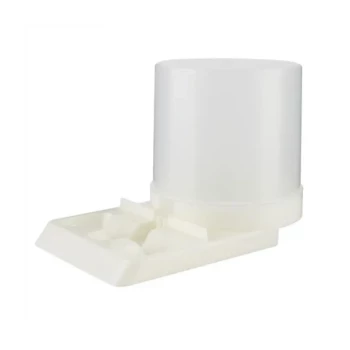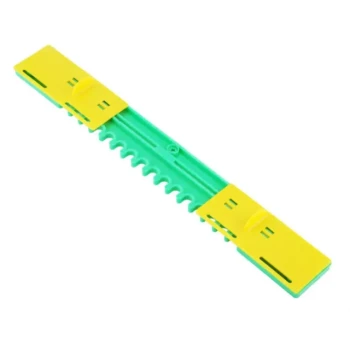In queen breeding, nucleus (nuc) hives serve as specialized, resource-efficient incubators for new queens. Their small size creates a controlled environment that allows a beekeeper to easily introduce a new queen cell, monitor her emergence and mating, and confirm she is laying healthy eggs without the complexity of managing a full-sized colony.
The fundamental role of a nuc hive in queen breeding is to create a small, manageable environment that concentrates the colony's resources on raising and mating a new queen, rather than on honey production or large-scale population growth.
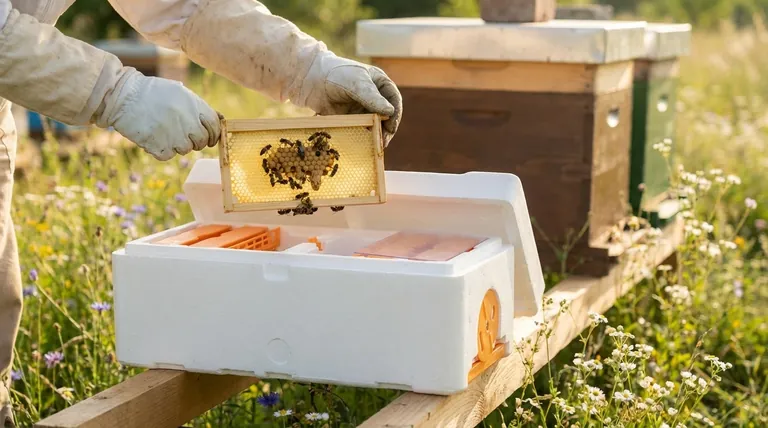
The Strategic Advantage of a Smaller Colony
Using a full-sized hive to raise a single queen is inefficient. A nuc hive provides the ideal balance of population and resources to support a new queen through her most critical early stages.
Controlled Mating Environment
A nuc contains just a few frames of bees, brood, and food. This minimal setup is all that is required to care for a new queen.
It provides a safe, contained space to introduce a delicate queen cell or a newly emerged virgin queen, increasing the odds of acceptance by the worker bees.
Simplified Queen Identification
Finding a single, unmarked queen among 60,000 bees in a full-sized hive can be extremely difficult and time-consuming.
In a nuc with only a few thousand bees, locating the queen to check her health and development is a simple task that takes only moments. This makes tracking and evaluation highly efficient.
Focused Resource Allocation
The worker bees in a nuc hive have one primary job: care for the new queen and her first small batches of brood.
Their energy is not divided among foraging vast nectar flows or building out dozens of frames. This focus ensures the new queen receives optimal attention and nutrition.
Understanding the Trade-offs and Risks
While nucs are ideal for their purpose, their small size is also their primary limitation. A beekeeper must manage them actively to prevent problems.
Limited Egg-Laying Space
A healthy, newly mated queen is an egg-laying machine. She can quickly fill the limited comb available in a small nuc hive.
Once she runs out of space, her productivity is capped, and the colony's natural instincts can lead to problems.
Increased Swarm Risk
The most common issue in a successful but neglected mating nuc is swarming.
When the queen runs out of laying space and the population becomes crowded, the colony's natural response is to prepare to swarm. The bees will create new queen cells to raise a successor and leave with the established queen.
Potential for Supersedure
If a nuc becomes too crowded or "honey bound" (every cell filled with nectar), the bees may perceive their queen as failing because she has stopped laying.
In this scenario, they may create supersedure cells to replace her, undermining the entire goal of the breeding process.
Making the Right Choice for Your Goal
Using nuc hives effectively requires aligning your management strategy with your specific objective.
- If your primary focus is raising a few replacement queens for your own apiary: Use nucs as temporary mating boxes and be prepared to move the successfully laying queen into a full-sized hive within a few weeks to give her adequate space.
- If your primary focus is running a larger breeding operation: Your workflow must include a strict and frequent schedule for checking nucs and moving laying queens out to prevent swarming and resource depletion.
Ultimately, mastering the nuc hive is fundamental to achieving efficient and predictable queen production.
Summary Table:
| Aspect | Role in Queen Breeding |
|---|---|
| Environment | Creates a small, manageable space for introducing and monitoring a new queen. |
| Efficiency | Concentrates colony resources on queen rearing instead of honey production. |
| Monitoring | Simplifies queen identification and health checks due to a smaller population. |
| Management | Requires active oversight to prevent swarming and resource depletion. |
Ready to enhance your queen breeding program with reliable equipment?
HONESTBEE supplies durable, high-quality beekeeping supplies and equipment to commercial apiaries and distributors through wholesale-focused operations. Our products are designed to support efficient and scalable apiary management, helping you achieve predictable results.
Contact HONESTBEE today to discuss your wholesale needs and discover how our equipment can benefit your operation.
Visual Guide
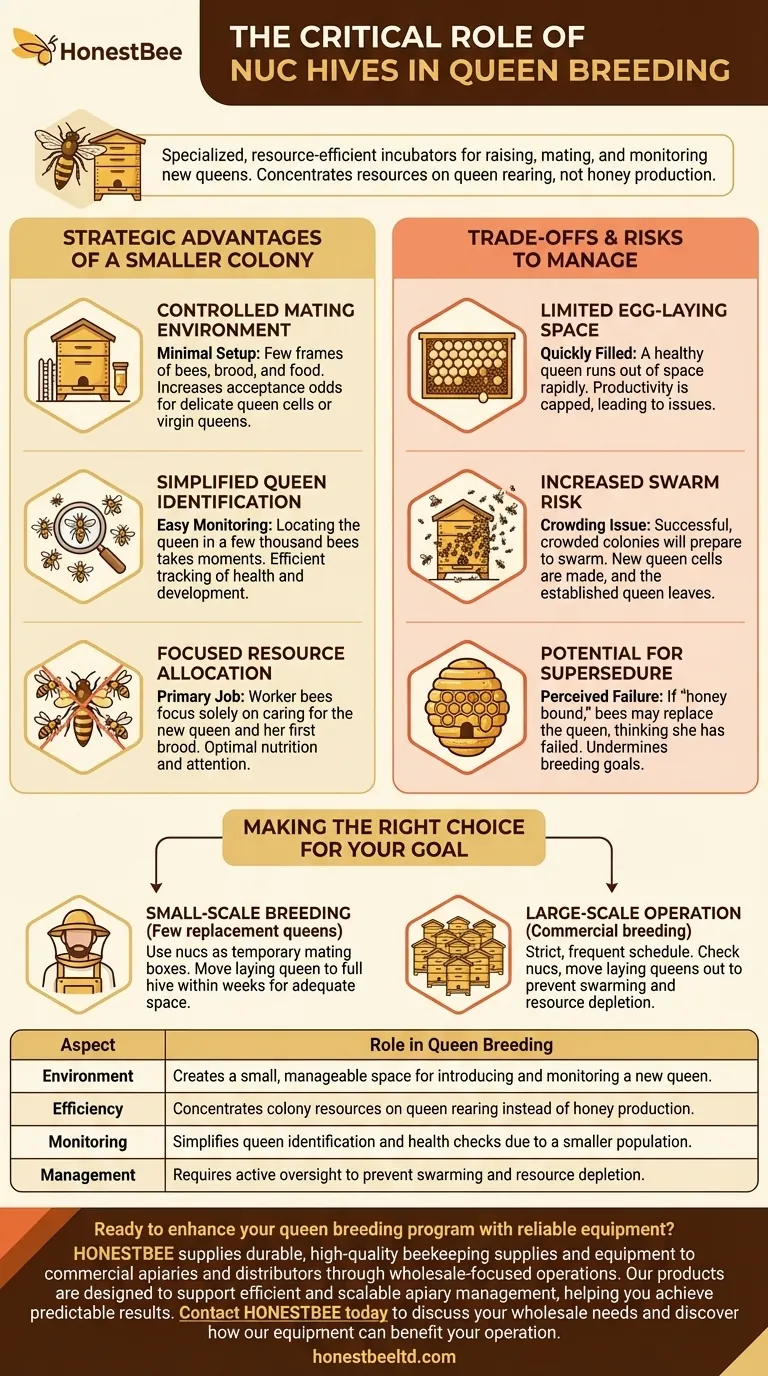
Related Products
- Twin Queen Styrofoam Honey Bee Nucs Mating and Breeding Box
- 5 Frame Wooden Nuc Box for Beekeeping
- Durable Galvanized Steel Spring Queen Bee Cage
- Plastic Chinese Queen Grafting Tool for Bee Queen Rearing
- HONESTBEE Professional Long Handled Hive Tool with Precision Cutting Blade
People Also Ask
- What are the technical differences between starting a colony with package bees versus a nuc? Nuc vs. Package Bees Guide
- What should be done one week after installing the nuc? Your First Hive Inspection Guide
- What is the typical worker bee population in package bees vs nucleus colonies? Choose the Right Start for Your Hive
- What is the process for transferring frames from a nucleus hive to a new hive? A Step-by-Step Guide for a Stress-Free Colony Move
- What is the purpose of exploring double nuc boxes in beekeeping? Boost Apiary Resilience & Growth
- What is a resource hive, also known as a double nuc? Boost Survival with Shared Thermal Efficiency
- How should the transfer of bees from the nuc box to the hive be performed? A Step-by-Step Guide for a Strong Colony
- What role do miniature mating hives play in the large-scale testing of SDI queens? Optimizing Research Efficiency


